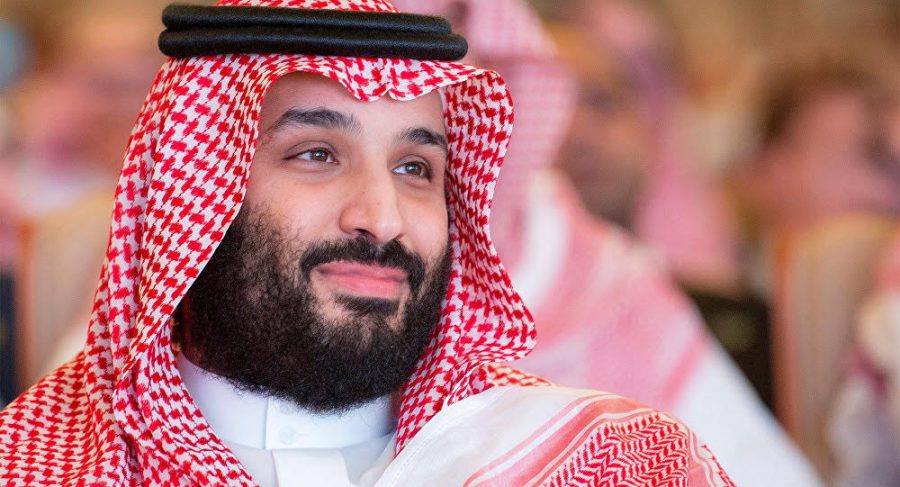MBS: TIME’s Person of a Very Bad Year
By Edward Sheehan
As the online reader poll for Time magazine’s Person of the Year draws to a close, the top candidates are an interesting mix of figures. Leading the pack, likely thanks to a devout online following, is Korean pop band BTS. Also in the mix are South Korean President, Moon Jae-in, who earned well-deserved plaudits for his successful efforts to bring peace talks to the Korean Peninsula; the planet Earth, presumably how it’s likely to end if we don’t do something and Dr. Christine Blasey Ford. But there was one name high on the list who I immediately realized captured the zeitgeist of 2018. He won the reader poll last year and will likely be a mover and shaker on the geopolitical stage for most of our lifetimes. That man is the Crown Prince and de facto ruler of Saudi Arabia, Prince Mohammed Bin Salman.
You may be wondering who would support giving this honor to the guy who had journalist Jamal Khashoggi ambushed, tortured and carved to pieces. And yet, in its early decades, Time gave the title to the most influential figure of a given year, irrespective of whether said figure was influential for morally right reasons. Early winners included Adolf Hitler and Joseph Stalin. This tradition was downplayed after 1979, when the selection of Ayatollah Khomeini during the height of the Iran Hostage Crisis led to an outcry. But honestly, I think that decision should be reversed to reflect these dark times we live in. I think Mohammad Bin Salman, known as MBS, has been not only an influential figure this year, but also, on a more philosophical level, the year itself distilled into human form.
MBS has been in hot water with the western press since the Oct. 2 slaughter of Khashoggi, but let’s not forget before that murder, he was riding high in the world’s eyes. He was seen as a bold reformer in a stodgy kingdom that had been ruled for decades by a late Soviet-esque string of dying men. He was lauded for defying the religious establishment by allowing women to drive and re-opening movie theatres and for instituting a shakedown against the kingdom’s endemic corruption, at one point imprisoning members of his family in a Riyadh hotel.
But there was a dark side behind this apparent dynamism and return. Observers pointed out that the corrupt royals he jailed tended to be his own rivals for power (Khashoggi, not coincidentally, was an associate of many of these royals), and that the Kingdom’s quiet support for radical Islamists all over the Middle East continued unabated.
Indeed, this situation should be a cautionary tale to the press. They lauded MBS despite clear signs that his words were hollow and his promises empty. Indeed, in the past much of the mainstream media did the same for other leaders until they exposed themselves as thuggish strongmen, like Turkey’s Recep Tayyip Erdogan and Russia’s Vladimir Putin. A well-considered Person of the Year profile could discuss the press’ failings, and how part of the reason for our nation’s current suspicions of the mainstream media is due to a tradition of presenting the powerful as the powerful. But this brutal self-examination in an age of terrifying challenges won’t happen, and that’s why MBS captures the spirit of the year.
MBS will get away with Khashoggi’s murder and with the deaths of hundreds of thousands of Yemenis; these deaths have already happened, but America is outright denying it. The powerful nations of Europe, as America’s slightly more squeamish adjunct, is offering strongly worded condemnations but, when push comes to shove, they’ll probably keep selling the Saudis weapons, buying their oil and supporting their foreign policy objectives. Vladimir Putin high-fived the man at the G20 conference. China is tight-lipped, but money talks, and a rapidly industrializing country needs fuel for its factories, so everything will go back to normal soon enough. The powerful all escape justice.
And indeed, MBS is a negation of all the other candidates for the award. The rescue of those Thai kids was inspiring feel-good news, but so were things like Saudi women being allowed to drive, which provided MBS a cover to pursue a brutal agenda. Similarly, the youth of Saudi Arabia are rabid consumers of pop culture, including music and TV shows from South Korea like that of BTS, but that doesn’t give them any more freedom from a regime that is still highly religious, sexist and homophobic. Saudi oil is a big part of the reason why the Earth is in such a dire state. And, of course, as is the case both with Dr. Ford and Brett Kavanaugh and MBS and Jamal Khashoggi, the powerful get away with their crimes, despite the courage of the powerless.
Mohammed Bin Salman is the person who best exemplifies the horror of this year. God help the rest of us.
Edward Sheehan, FCRH ’22, is a history major from Needham, Massachusetts.










































































































































































































